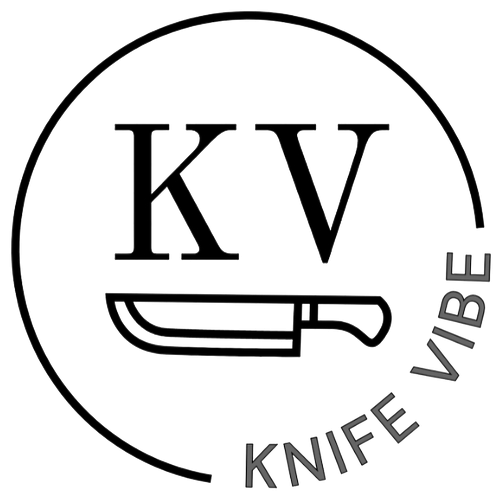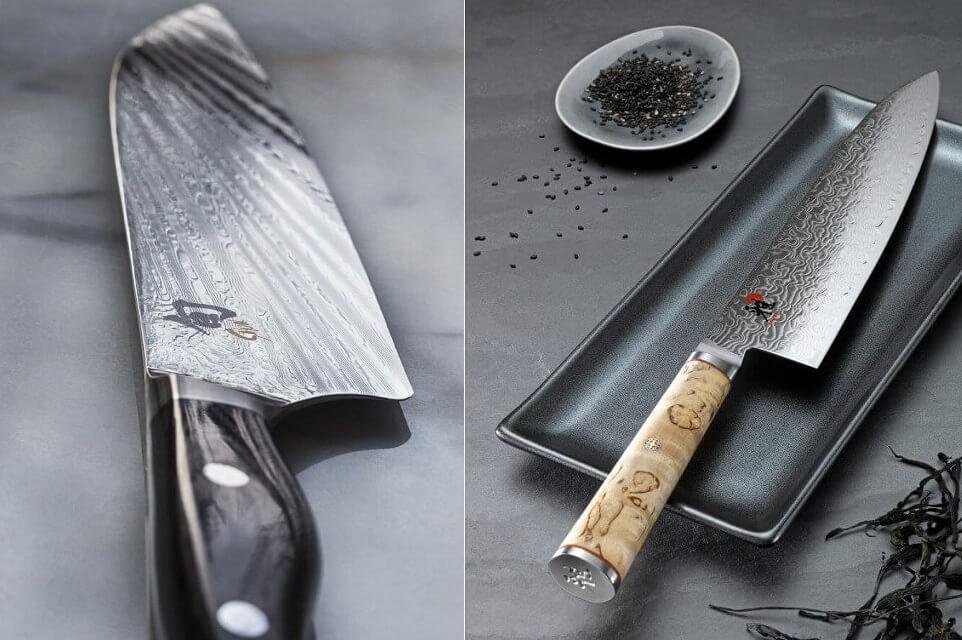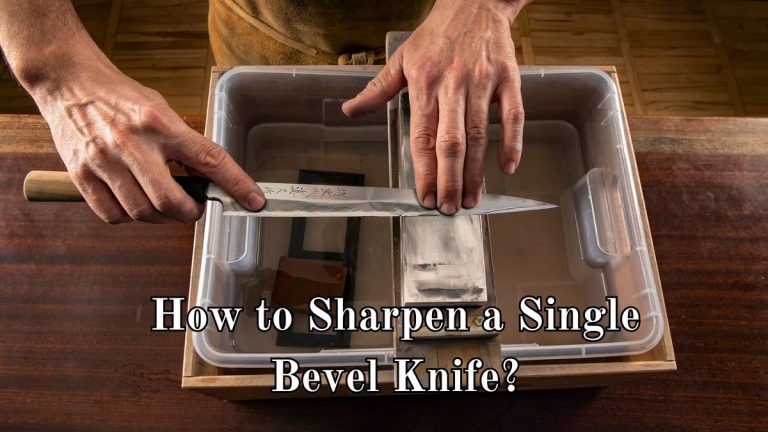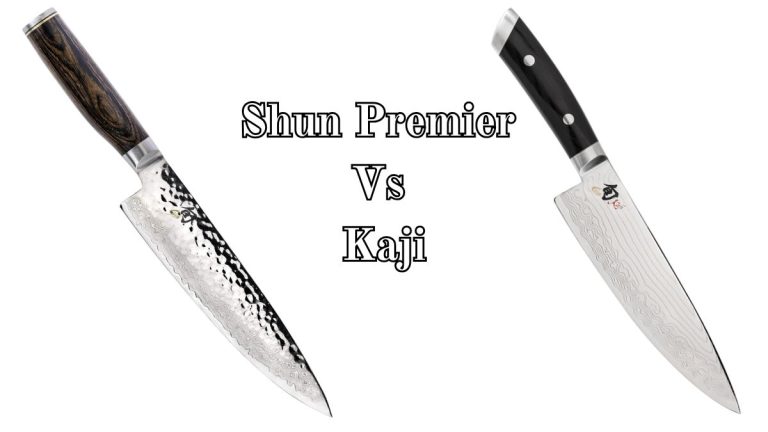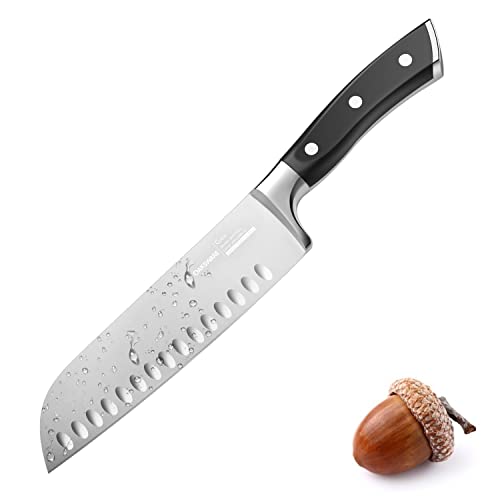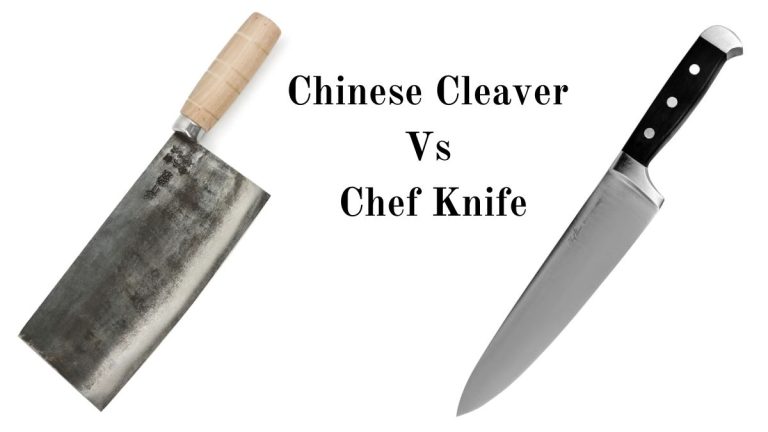Miyabi Vs Shun: Which Japanese Knife Reigns Supreme?
Choosing between Miyabi and Shun knives can be challenging. Both brands offer high-quality Japanese knives known for precision and craftsmanship.
We will compare Miyabi and Shun knives to help you decide which brand suits your needs. Comparing these two popular brands provides insight into their unique features and benefits. This comparison will cover aspects like blade construction, handle design, and overall performance.
By the end, you’ll have a clearer understanding of what sets Miyabi and Shun apart. Whether you are a professional chef or a home cook, this guide will help you make an informed choice. Let’s dive into the world of Miyabi and Shun knives and discover which one is the perfect fit for your kitchen.
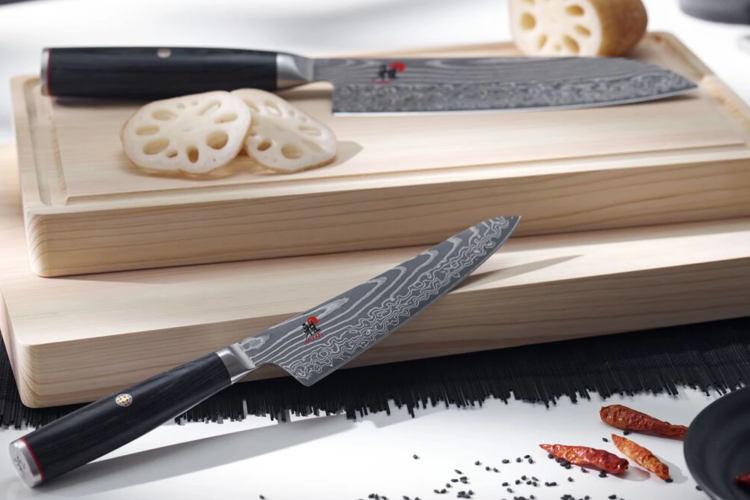
Credit: www.cozymeal.com
Introduction To Japanese Knives
Japanese knives are admired worldwide for their precision and craftsmanship. These knives are known for their sharpness, durability, and unique designs. They are essential tools in kitchens, both professional and home-based. Two popular brands, Miyabi and Shun, stand out in the world of Japanese knives. To appreciate these brands, it is important to understand the history and cultural significance of Japanese knives.
Brief History
Japanese knives have a rich history dating back centuries. They evolved from samurai swords, known for their incredible sharpness and strength. In the past, skilled blacksmiths crafted these swords. Over time, these techniques were applied to kitchen knives.
The production of Japanese knives is a meticulous process. Craftsmen use traditional methods passed down through generations. This dedication ensures each knife meets high standards of quality and performance. The result is a tool that is both functional and beautiful.
Cultural Significance
Japanese knives hold deep cultural significance. They symbolize the dedication and skill of the craftsman. In Japan, a knife is more than a tool. It is a piece of art and a reflection of the maker’s soul.
In Japanese cuisine, the knife plays a vital role. Chefs use knives to prepare intricate dishes with precision. The design of the knife affects the quality of the food. This respect for the knife extends to its care and maintenance. Owners often treat their knives with great reverence, ensuring they remain sharp and functional.
Understanding the cultural importance of Japanese knives enhances their value. It connects the user to a long tradition of excellence and respect for craftsmanship.
Miyabi Knives Overview
When it comes to premium kitchen knives, Miyabi stands out. This brand is known for its artistry and precision. Let’s dive into what makes Miyabi knives special.
Brand Background
Miyabi is a Japanese brand under the Zwilling J.A. Henckels group. This brand blends German engineering with Japanese craftsmanship. The result? High-quality kitchen knives.
Miyabi knives are made in Seki, Japan. Seki is famous for its long history of samurai sword-making. This heritage reflects in the quality of Miyabi knives.
Key Features
Miyabi knives are known for their sharpness. They are made from high-carbon stainless steel. This material keeps the edge sharp for a long time.
Each knife undergoes a special ice-hardening process. This makes the blade stronger and more durable. The process is called the CRYODUR technique.
The handles are also a highlight. They are made from high-quality materials like pakkawood or micarta. These materials offer a comfortable grip and add to the knife’s aesthetic appeal.
Miyabi knives also feature beautiful blade patterns. These patterns are created through a special forging technique. They not only look stunning but also enhance the knife’s performance.
Shun Knives Overview
Shun knives have a rich history and are a favorite among many chefs. They are known for their quality and craftsmanship. In this section, we will explore the background of Shun knives and their key features.
Brand Background
Shun knives come from the Kai Corporation, founded in 1908 in Seki City, Japan. Seki City has a long history of sword making, dating back over 800 years. The company applies traditional techniques to modern kitchen knives. This blend of old and new makes Shun knives unique.
Key Features
Shun knives are made from high-quality VG-MAX steel. This steel offers excellent edge retention and durability. The blades are often layered with Damascus cladding, giving them a beautiful, wavy pattern. This not only looks great but also helps prevent food from sticking to the blade.
The handles are crafted from PakkaWood. This material is a mix of wood and resin, offering both durability and a natural feel. Shun knives have an ergonomic design, making them comfortable to use for long periods.
Each knife is hand-sharpened to a precise 16-degree angle. This sharp edge allows for clean and precise cuts. The balance of the knife is also carefully considered. This ensures ease of use and reduces hand fatigue.
Shun knives also come in various styles, including chef’s knives, paring knives, and santoku knives. Each type is designed for specific tasks, ensuring you have the right tool for the job.
Blade Materials And Construction
When comparing Miyabi and Shun knives, understanding blade materials and construction is crucial. The materials and techniques used in crafting the blades influence their performance, durability, and maintenance. Let’s delve into the types of steel and forging techniques employed by these renowned brands.
Types Of Steel
Miyabi and Shun use different types of steel to create their knives, each with unique properties.
| Brand | Type of Steel | Key Characteristics |
|---|---|---|
| Miyabi | SG2, VG10, and CMV60 | High hardness, excellent edge retention, corrosion resistance |
| Shun | VG-MAX, VG10, and AUS8A | High durability, sharpness, easy to sharpen |
Miyabi knives often use SG2 steel, known for its high hardness and edge retention. VG10 and CMV60 are also popular choices. These steels offer excellent corrosion resistance.
Shun knives primarily use VG-MAX steel, an upgraded version of VG10. It provides a balance of sharpness and durability. Shun also uses AUS8A steel in some models for its ease of sharpening.
Forging Techniques
The forging techniques used by Miyabi and Shun impact the blade’s strength, sharpness, and aesthetic appeal.
- Miyabi employs traditional Honbazuke honing. This involves three steps to create a razor-sharp edge.
- Shun uses a combination of traditional handcrafting and modern technology. This process ensures consistent quality and sharpness.
Miyabi’s ice-hardening process enhances the blade’s durability and sharpness. This technique hardens the steel to its maximum potential.
Shun’s knives are often forged using the Kasumi method. This involves layering different types of steel to create a strong and sharp blade. The result is a blade with a hard core and a softer outer layer, providing a unique combination of hardness and flexibility.
Design And Aesthetics
When comparing Miyabi and Shun, the design and aesthetics play a crucial role. Both brands are known for their elegant and visually appealing knives. Let’s delve into the specifics of their handle design and blade finish.
Handle Design
The handle design of a knife greatly influences its comfort and usability. Miyabi knives often feature a traditional Japanese D-shaped handle. This design provides a secure grip and ensures precision during use.
In contrast, Shun knives typically have a more modern handle design. They often use Pakkawood, a material that combines durability with a sleek look. Shun handles are engineered for a comfortable grip, even during extended use.
| Brand | Handle Material | Design |
|---|---|---|
| Miyabi | Micarta, Birchwood | Traditional D-shaped |
| Shun | Pakkawood | Modern Ergonomic |
Blade Finish
The blade finish is not just about looks; it also affects performance. Miyabi knives often feature a Damascus finish. This gives the blade a beautiful, wavy pattern and improves its strength.
Shun knives also use a Damascus finish but with a unique approach. Their blades often have a hammered Tsuchime finish. This not only adds to the aesthetic appeal but also reduces drag, making cutting smoother.
Key Points:
- Miyabi: Damascus finish, wavy pattern, strong blade
- Shun: Hammered Tsuchime finish, reduces drag, smooth cutting
Understanding these design and aesthetic differences can help you choose the right knife. Both Miyabi and Shun offer beautiful, functional options.

Credit: prudentreviews.com
Performance And Sharpness
When comparing Miyabi and Shun knives, performance and sharpness are key factors. These brands offer exceptional cutting tools, but each has its unique strengths. Understanding their cutting ability and edge retention will help you choose the right knife for your needs.
Cutting Ability
Miyabi knives are known for their impressive cutting ability. The blades are incredibly sharp, allowing for precise cuts. These knives glide through ingredients with ease. Whether slicing vegetables or meat, you’ll notice the smoothness of each cut.
Shun knives also offer outstanding cutting performance. The razor-sharp edges ensure effortless slicing. You can achieve thin, uniform pieces effortlessly. Shun knives are excellent for tasks requiring precision and control.
Edge Retention
Edge retention is crucial for knife performance. Miyabi knives maintain their sharpness over time. The high-quality steel used ensures long-lasting edges. You won’t need to sharpen them frequently, which is convenient.
Shun knives also excel in edge retention. Their blades stay sharp for extended periods. The advanced steel technology used in Shun knives enhances their durability. You can rely on these knives for consistent sharpness.
Price And Value
When choosing between Miyabi and Shun knives, understanding the price and value is crucial. Both brands offer high-quality knives, but their costs and long-term benefits vary. This section breaks down the cost comparison and long-term investment for each brand.
Cost Comparison
Price is a significant factor for many buyers. Let’s compare the costs of Miyabi and Shun knives.
| Brand | Starting Price | Average Price Range |
|---|---|---|
| Miyabi | $100 | $100 – $400 |
| Shun | $75 | $75 – $350 |
Both brands offer knives at different price points. Miyabi knives generally start at a higher price. Shun provides a wider range, which can be more affordable for some buyers.
Long-term Investment
When investing in kitchen knives, considering their long-term value is essential. High-quality knives can last for years with proper care.
- Miyabi: Known for their durability and high-quality materials. These knives often feature a beautiful design and excellent craftsmanship. They can be a long-term investment for serious cooks.
- Shun: Also known for durability and quality. Shun knives are often praised for their sharpness and ease of maintenance. They can be a great investment for both home cooks and professionals.
Both Miyabi and Shun knives offer great value for their price. The choice depends on personal preferences, budget, and intended use.

Credit: www.youtube.com
User Experience
Choosing the right knife can be a challenge. Understanding user experiences helps. Let’s explore how Miyabi and Shun knives perform based on reviews from chefs and home cooks.
Chef Reviews
Professional chefs often have high standards for their tools. Let’s see what they have to say about Miyabi and Shun knives.
| Aspect | Miyabi | Shun |
|---|---|---|
| Blade Sharpness | Miyabi knives are praised for their exceptional sharpness. Chefs find them precise. | Shun knives are also very sharp. They hold their edge well. |
| Design | Many chefs love the elegant design of Miyabi knives. They find them visually appealing. | Shun knives have a classic design. Chefs appreciate their traditional look. |
| Ergonomics | Miyabi knives are comfortable to use. Chefs report less hand fatigue. | Shun knives are well-balanced. They provide a good grip during long use. |
Home Cook Feedback
Home cooks also have valuable insights. Their feedback highlights the practical side of using these knives.
- Miyabi: Home cooks love the sharpness of Miyabi knives. They say it makes cutting easier.
- Shun: Many home cooks enjoy using Shun knives. They find them easy to handle.
- Maintenance: Both brands require regular sharpening. Home cooks find this manageable.
Overall, user experiences highlight the strengths of both Miyabi and Shun knives. Chefs and home cooks appreciate their quality and performance.
Frequently Asked Questions
What Are Miyabi Knives Known For?
Miyabi knives are known for their exceptional sharpness and beautiful craftsmanship. They are made using traditional Japanese techniques. The blades are made from high-quality steel. They are often praised for their durability and precision.
What Distinguishes Shun Knives From Others?
Shun knives are distinguished by their VG-MAX steel blades and elegant designs. They are made in Japan. Shun knives are known for their sharpness and edge retention. They also feature a comfortable handle and excellent balance.
How Do Miyabi And Shun Knives Differ?
Miyabi and Shun knives differ in their blade composition and design. Miyabi knives focus on traditional Japanese aesthetics. Shun knives blend Japanese craftsmanship with modern innovations. Both brands offer high-quality, durable knives.
Are Miyabi Knives Worth The Investment?
Yes, Miyabi knives are worth the investment due to their sharpness and durability. They are crafted with precision. These knives are ideal for professional chefs and cooking enthusiasts. Their beautiful design adds value to any kitchen.
Conclusion
Choosing between Miyabi and Shun depends on your personal preference. Both brands offer high-quality knives. Miyabi knives emphasize sharpness and detailed craftsmanship. Shun knives focus on precision and ease of use. Think about your cooking style and needs. Remember to consider factors like handle comfort and blade type.
Both Miyabi and Shun can enhance your kitchen experience. Make an informed choice and enjoy your cooking!
